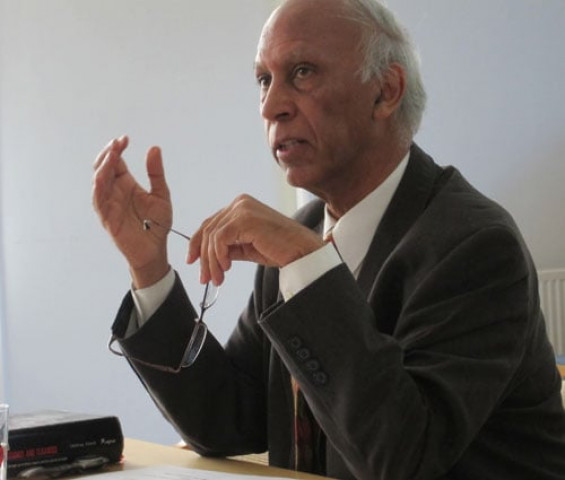Cracking India: ‘Muslims perpetrated communal disturbances’
Seminar on partition and its impact on the Punjab organised.

Professor Emeritus Ishtiaq Ahmed
Amritsar would have been indefensible if Gurdaspur had been awarded to Pakistan, Stockholm University Professor Emeritus Ishtiaq Ahmed said on Friday.
He was addressing a seminar on the partition of India and its impact on the Punjab at the Information Technology University. Ahmed said Pakistan’s claim on Gurdaspur was feeble as Ahmadis constituted a prominent part of the population in the area. He said Muslims in the district constituted a minority if members of the Jamaat Ahmadiyya were not counted among their ranks.
Ahmed shed light on how revivalist movements among the Muslim, Hindu and Sikh communities in the Punjab had cemented religious identities. He said this had negated the plural ethos of India.
The academic spoke about how the British began patronising the Muslim League following the advent of World War II. Ahmed shed light on how communal disturbances had spread to the Punjab following the 1946 Great Calcutta Killings orchestrated by the Muslim League with Muslims going on the offensive in Rawalpindi’s vicinity.
He said The Radcliffe Boundary Award was fair.
Ahmed said it was nearly congruent with Lord Wavell’s Break Down plan that had been presented in 1946. He said military strategy and defence played a pivotal role in determining the Radcliffe Line rather than the communal composition of population.
Ahmed said Muslims had perpetrated communal disturbances in the Punjab.
He said they had to bear the brunt of their actions as more Muslims lived side by side Hindus and Sikhs in East Punjab than vice-versa. Ahmed eulogised Mahatma Gandhi for touring riot-affected areas and trying to foster peace in contrast with the attitude of Muslim League leaders who he said were no-where to be seen at refugee camps and did little to put an end to communal violence.
Published in The Express Tribune, May 23rd, 2015.


















COMMENTS
Comments are moderated and generally will be posted if they are on-topic and not abusive.
For more information, please see our Comments FAQ